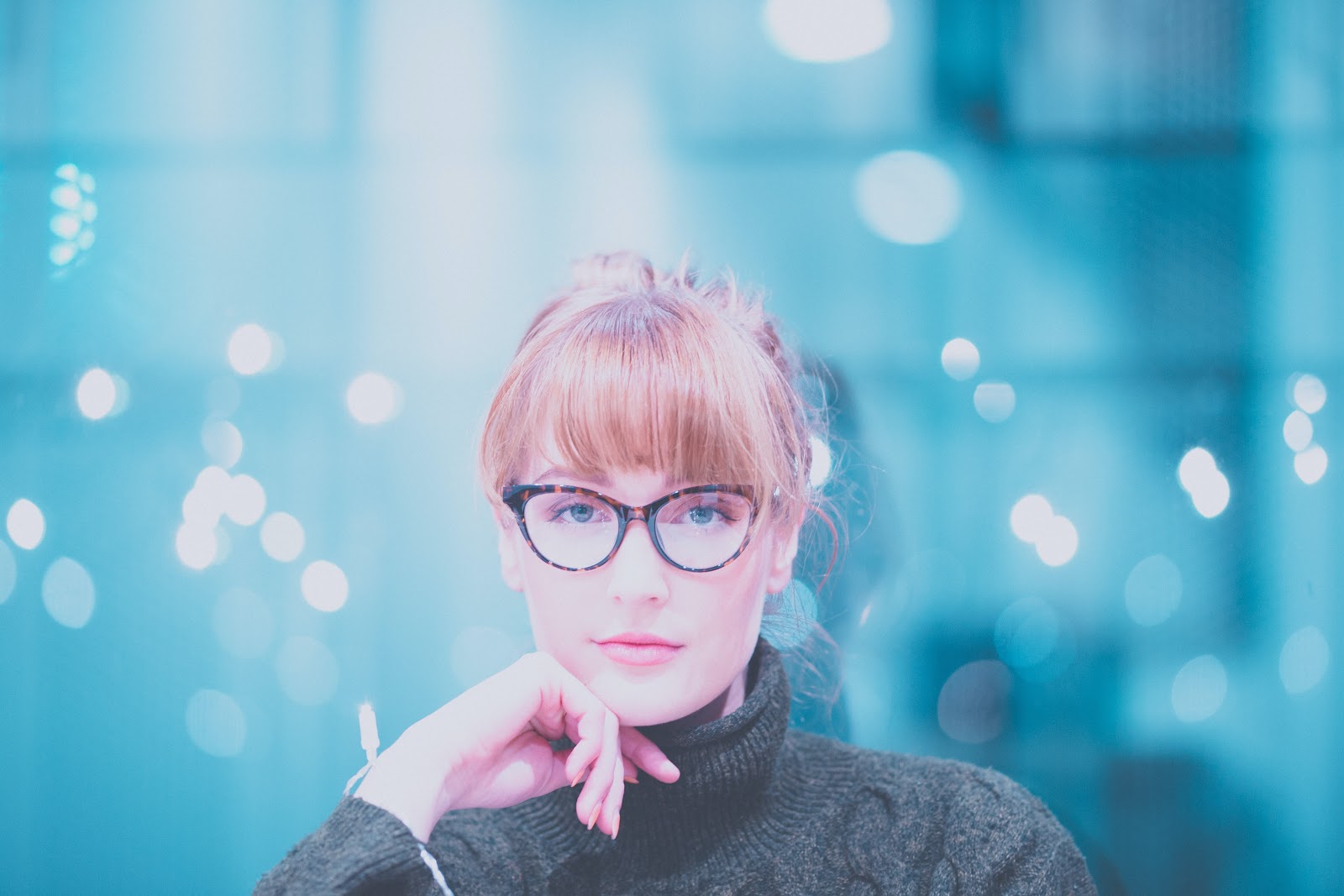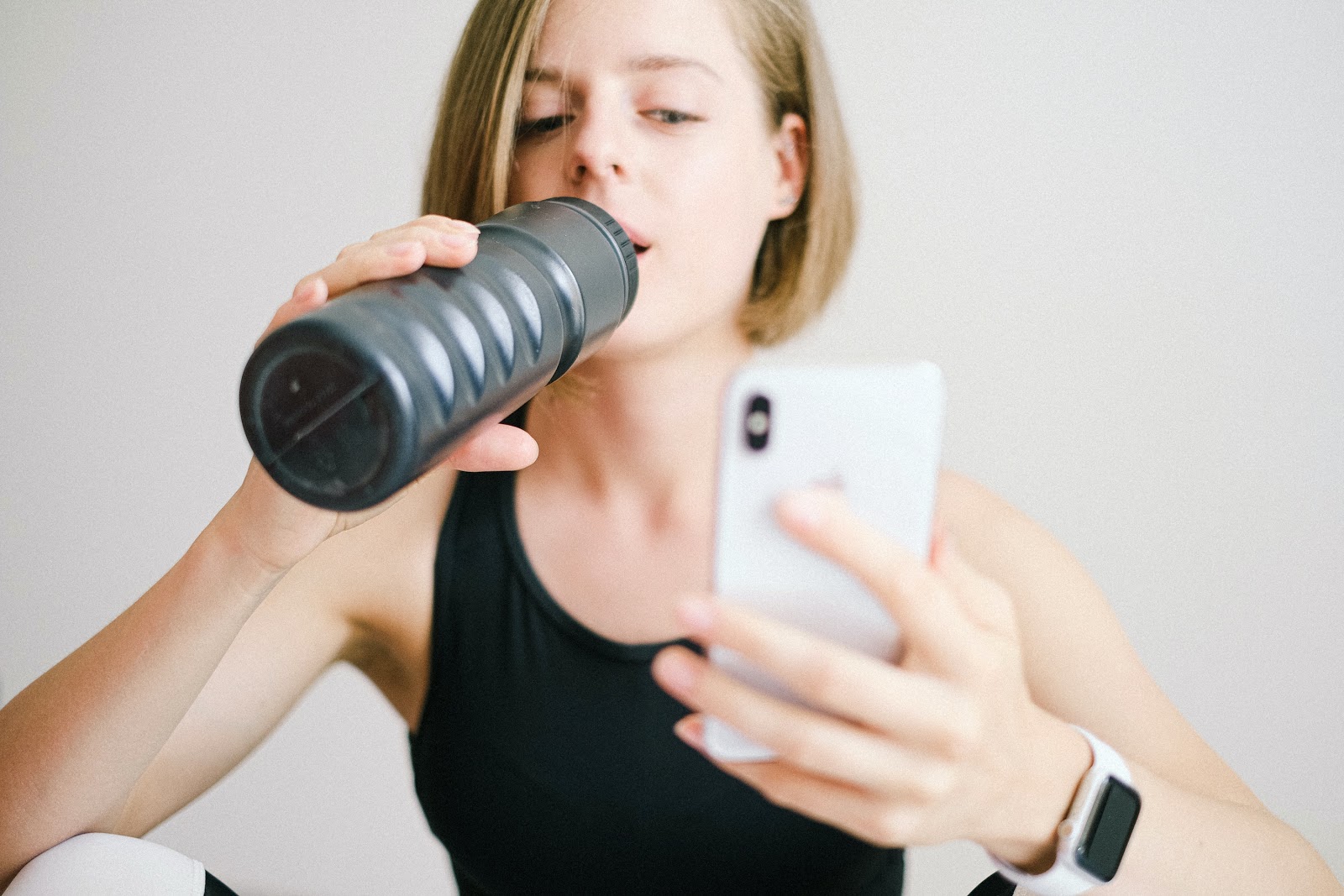
How Blue Light Affects You (and What You Can Do About It)
How many hours per day do you spend scrolling on your phone, watching television, or working on your laptop? The truth is, in the modern world, the hours we spend in front of a screen really add up. As such, experts recommend limited screen time to minimize blue light effects.
The average adult spends nearly four hours a day on their phone alone. For those who work in front of a computer, the numbers are likely much higher. Unfortunately, the blue light emitted from contemporary screens can cause damage to your health over time.
What Is Blue Light?
Blue light is just one of several colors present on the visible light spectrum. All of the colors on the spectrum—remember Roy G. Biv?—combine to produce white light. Major white light sources, like the sun, also emit blue light. Fluorescent and LED lights are small-scale sources of blue light.
Just like every color, blue light possesses its own wavelength and energy level. Blue light has a particularly short wavelength and high energy level, making it damaging to humans over time.
What Does Blue Light Do to You?
You might be wondering—is blue light bad for my health? The short answer is yes. Electronic emitted blue light is linked to a host of health issues and undesirable effects, including what’s discussed below.
Eye Damage
Blue light effects on the eye have risen in prominence with the rise of mobile devices, primarily because the human eye lacks the ability to protect itself from blue and UV lights. Excessive exposure to blue light can cause problems like blurred vision, eye strain, macular degeneration, dry eye, and more.
Disrupted Sleep
Blue light is often a culprit when it comes to insomnia and poor sleep quality.
Essentially, blue light causes problems by disrupting the circadian rhythm. This cycle aligns with the sunrise and sunset and provides your body with essential cues—like when to sleep and when to rise. However, electronics have introduced a surplus of blue light into daily life—making it harder for modern humans to manage their sleep cycle.
To mitigate the effects of blue light on a good night’s sleep, The Sleep Foundation recommends turning off all screens about 2–3 hours before bedtime.
Skin Damage
Much like blue light from the sun, too much of the blue light from your phone can be detrimental to your skin health.
In small amounts, blue light can kill bacteria and kill some forms of acne, but large quantities can wreak havoc on your youthful glow. Long sessions in front of a screen can cause inflammation, redness, dark spots, wrinkles, and even break down collagen—which gives your skin a healthy bounce and dewiness.
Negative Mental Health Effects
Unfortunately, blue light can be a major blight on your mental health. Recent studies have shown that there has been a 37% increase in reported mood disorders and symptoms among young people—a phenomenon that has been largely attributed to a drastic jump in the use of electronics and blue light exposure.
While blue light is not solely to blame, its effects on mental health may include sleep disruption, trouble focusing, and shifts in mood.
How Can You Minimize Blue Light Effects?
The adverse effects of blue light may be intimidating, but there are several steps you can take to limit its impact on your life.
Wear Blue Light Glasses
One of the most popular ways to combat the consequences of blue light is with blue light glasses. The latter helps minimize the negative effects of the cobalt rays from your computer using slightly yellow-tinted lenses to protect your peepers. Blue light blockers can be purchased alone or added to prescription lenses.
Warby Parker has a wide selection of both men’s glasses and women’s glasses. For example, the Whalen frame is a popular choice that retails for upwards of $95. If you’re looking for a budget pair to try out, LifeArt’s $17 pair on Amazon is an excellent alternative.
Protect Your Skin
To protect again skin damage, it is recommended that you wear the following on your skin daily: a defense serum, sunscreen, or photoaging blocker.
When choosing your barrier against blue light, reach for a broad-spectrum formula that blocks UVA, UVB, and blue light. Supergoop! Glowscreen in SPF 40 is a perfect example of a dewy formula that does it all. It acts as a luminous primer that protects your skin from UVA and UVB when outdoors and blue light when you’re facing a full day of screen time.
Invest in a Blue Light Screen Filter
If you’re hesitant to try blue light glasses or fear that a great sunscreen won’t cut it, you may want to invest in a blue light screen filter. Similar to a standard screen protector, this panel sticks directly to your laptop or desktop screen. The goal is to block blue light at the source. A great option is the FORITO Eye Protection Screen Protector, which is available on Amazon.
Get Outside
While there are many great products to reduce blue light effects, you can also mitigate the blue light blues by spending time outside. To help keep your circadian rhythm aligned and boost your mood, take a walk or find a great hiking trail. After all, the right amount of blue light from the sun can help you feel alert and ready to take on the day.
Limit Your Screen Time
One of the best decisions you can make when it comes to your daily health is finding ways to limit screen time. Once the sun goes down, make it a priority to put down the phone, wrap up computer work, and turn off the television long before it’s time to sleep.
Once you unlock a better night’s sleep and an improved mood, you may be surprised to find you have the rest and motivation you need to tackle morning yoga or a more mindful daily routine.
Are You Fully Protected From Blue Light Effects?
Ditching screens isn’t really an option for modern professionals.
However, minimizing blue light effects becomes easier once you understand the effects of blue light. You can find many products on the market designed to protect you from the damaging rays coming from your screen.

